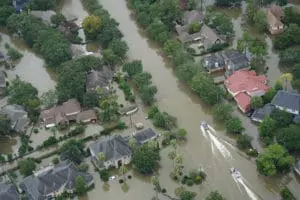Saving Water & Money
Whether you live in a desert or next to a lake, there are good reasons to conserve water.
Text
Whether you live in a desert or next to a lake, there are good reasons to conserve water. By saving water, you can save money while helping the environment. Here are some ideas for wringing the most use out of your family’s water supply.
Seek the Leaks
Did you know that there is a national Fix-A-Leak Week each March? But you don’t have to wait until then. Finding and fixing leaks can save homeowners about 10% a year on their water bills. According to the EPA, the average household wastes 10,000 gallons of water a year due to leaks alone—enough to wash 270 loads of laundry.
Common leak locations include dripping faucets, toilet flappers, and showerheads. To determine whether you have any leaks, check your water meter before and after a 2-hour window while all your water is shut off. If the meter does not read the same, chances are you have a leak. Check out EPA Guidelines.
Be Mindful of the Water You Use
The truth is unless we’re in a drought many of us don’t really think about our water use. The good news is that it’s easy to save a lot of water with just a little effort. Here are a few ideas:
- Don’t pre-wash dishes in the sink if you have a dishwasher.
- While running water is heating up, collect it to water plants.
- Don’t let water run unnecessarily while you’re doing dishes, brushing teeth, etc.
- Look for the WaterSense® label on toilets and showerheads.
- Teach your children not to waste water and to turn off faucets completely.
Water Lawns and Plants Efficiently
Saving water can actually help save your plants as well. Surprisingly, many plant and lawn problems aren’t due to under-watering, but watering too much. According to the U.S. Department of Agriculture, irrigating less often but applying more water per irrigation results in deeper-rooted plants and a healthier turf. They also recommend that you avoid watering on windy days and at midday when the evaporation level is the highest. Finally, letting your lawn go dormant allows grass to slow its growth and harden for winter. Read USDA advice. Better living begins with making smarter choices.
More on Safety & Property

5 Reasons Key Person Term Life Insurance is a Solid Risk Management Strategy for Architects
News ▪ December 2024
If not you then who? The architect’s role in addressing climate risks
News ▪ July 2024
LegaLine POV: Get copyright right
News ▪ October 2022